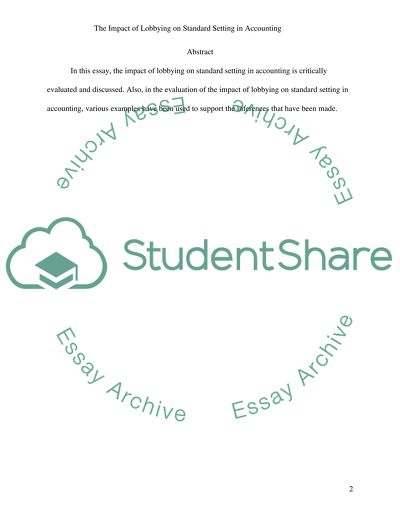Cite this document
(“The Impact of Lobbying on Standard Setting in Accounting Essay”, n.d.)
The Impact of Lobbying on Standard Setting in Accounting Essay. Retrieved from https://studentshare.org/finance-accounting/1493981-critically-examine-and-discuss-the-impact-of
The Impact of Lobbying on Standard Setting in Accounting Essay. Retrieved from https://studentshare.org/finance-accounting/1493981-critically-examine-and-discuss-the-impact-of
(The Impact of Lobbying on Standard Setting in Accounting Essay)
The Impact of Lobbying on Standard Setting in Accounting Essay. https://studentshare.org/finance-accounting/1493981-critically-examine-and-discuss-the-impact-of.
The Impact of Lobbying on Standard Setting in Accounting Essay. https://studentshare.org/finance-accounting/1493981-critically-examine-and-discuss-the-impact-of.
“The Impact of Lobbying on Standard Setting in Accounting Essay”, n.d. https://studentshare.org/finance-accounting/1493981-critically-examine-and-discuss-the-impact-of.


